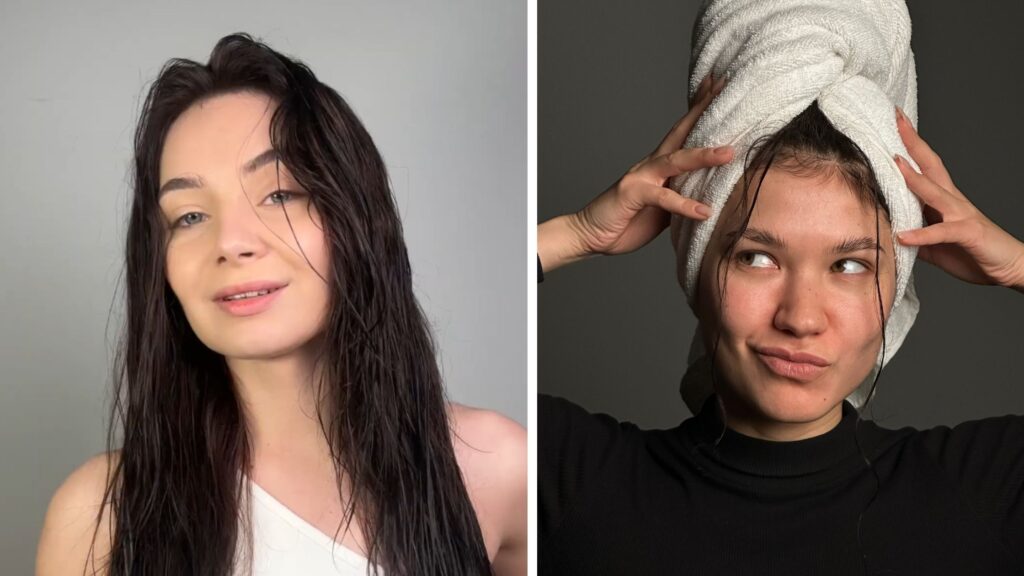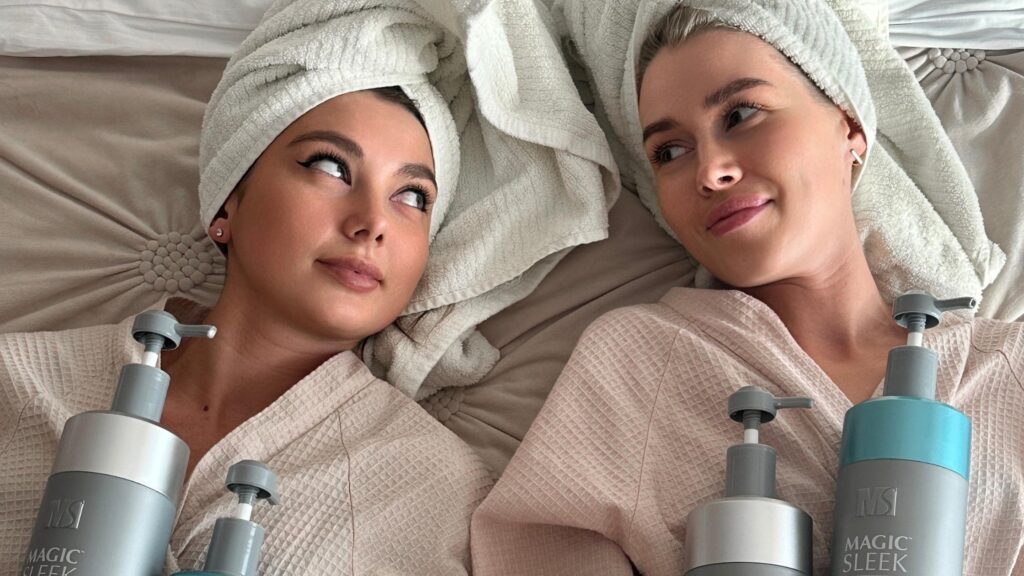
Washing your hair is an essential part of your hair care routine, but many people often wonder when is the best time to wash hair. Is it better to wash it in the morning or at night? Should you wash hair daily or less frequently? The answers to these questions depend on several factors, including your hair type, lifestyle, and personal preferences. In this comprehensive guide, we’ll explore the best time to wash hair, how often you should wash it, and tips to keep your hair looking and feeling its best.
Understanding the Importance of Washing Your Hair
Before diving into the specifics of the best time to wash hair, it’s important to understand why washing your hair regularly is essential for its health. Our scalps naturally produce oils that help to keep our hair moisturized, but these oils can build up, leaving the hair feeling greasy and weighed down. Washing hair removes dirt, oil, and product buildup, which can promote healthier, shinier hair. However, washing too frequently can strip the hair of natural oils, leading to dryness and damage.
Now, let’s explore some key factors to consider when determining the best time to wash hair for your specific needs.
1. Wash Hair in the Morning for Freshness
If you’re someone who likes to start the day with a burst of energy, washing your hair in the morning may be the right choice for you. Washing hair in the morning can leave you feeling refreshed and ready to face the day. For those with oily scalps or fine hair, washing hair in the morning can help remove excess oil that may have built up overnight, giving you a clean, voluminous look.
Washing hair in the morning also allows you to style your hair when it’s fresh and clean, which is important for getting the best results. If you need to use heat styling tools, like curling irons or straighteners, your hair will be easier to manage and hold a style better when freshly washed.
2. Nighttime Washing for Reduced Stress
While washing hair in the morning works for some, others may prefer nighttime washing as part of their evening routine. Washing hair at night can be a more relaxed and less time-pressured experience, especially if you don’t need to worry about getting ready for work or school. This gives you more flexibility and time to properly condition and treat your hair, which can lead to healthier, shinier hair in the long run.
Washing hair at night also gives your scalp time to recover and absorb any treatments you may apply, such as hair masks or oils. This is especially helpful for those with dry or damaged hair. Plus, when you wash hair at night, it has more time to air dry or naturally dry while you sleep, reducing the need for heat styling in the morning.
3. Hair Type and Texture: A Key Factor in When to Wash Hair
The best time to wash hair can also vary depending on your hair type and texture. If you have thick, curly, or dry hair, you may not need to wash hair as often as someone with fine or oily hair. Washing curly hair too frequently can lead to dryness, as curly hair tends to be drier by nature. On the other hand, fine hair or oily hair may require more frequent washing to keep it looking fresh and voluminous.
For curly or textured hair, consider washing hair every two to three days or once a week, depending on how your hair feels. For those with fine or oily hair, daily washing or every other day washing may be necessary to keep oil at bay.

4. How Often Should You Wash Hair?
How often you wash your hair plays a big role in maintaining its health. Many people wash their hair daily, but this can be damaging for certain hair types, especially if you have dry or color-treated hair. Washing hair too often can strip it of its natural oils, which may lead to dryness, frizz, or breakage.
For most people, washing hair every other day or three times a week is sufficient. This helps remove oil, dirt, and product buildup while allowing the natural oils to nourish and protect your hair. However, if you have very oily hair or engage in activities that cause excessive sweating, washing hair more frequently might be necessary. On the flip side, those with dry or curly hair can go longer between washes to preserve moisture.
5. Seasonal Considerations: Adjusting When to Wash Hair
The time of year can also influence when you should wash hair. During warmer months, when humidity and sweat levels are higher, washing hair more frequently may be necessary to maintain freshness. On the other hand, in colder months, your scalp may not produce as much oil, and you may find you need to wash hair less often to prevent dryness.
Adjusting your washing routine according to the seasons can help maintain the health and appearance of your hair. If you’re prone to dry scalp in the winter, consider using a hydrating shampoo and conditioner to replenish moisture while limiting the frequency of washes.
6. The Benefits of Scalp Health: Washing Hair for Cleanliness and Comfort
Your scalp’s health plays a vital role in the overall appearance of your hair. Regularly washing hair helps keep the scalp clean by removing excess oil, dirt, and product buildup. A clean scalp promotes healthy hair growth and can reduce the risk of dandruff and irritation. If you’re dealing with scalp issues like itchiness or flakes, washing hair regularly (using a gentle, soothing shampoo) can help alleviate these problems.
Some people prefer to wash hair more frequently during times of scalp discomfort, while others may wash hair less often to allow their scalp to retain its natural balance. Pay attention to how your scalp feels to determine the best time to wash hair for comfort.
7. Pre-Wash Hair Care: Preparing for a Wash
Before you wash hair, it’s important to prepare your hair to get the most out of the wash. Using pre-shampoo treatments, such as oils, hair masks, or deep conditioners, can help protect and nourish your hair before the washing process. These treatments should be applied to dry hair and left on for at least 15-20 minutes before washing.
If you’re washing hair in the morning, consider applying a pre-wash treatment the night before, allowing it to soak in overnight. If you’re washing hair at night, apply your pre-wash treatment early in the evening for the best results.
8. How to Wash Hair Effectively
The way you wash hair is just as important as when you wash it. When washing hair, always use lukewarm water to avoid damaging your hair with hot water. Hot water can strip your hair of its natural oils, leading to dryness and damage. Start by thoroughly wetting your hair, then apply a small amount of shampoo to the scalp and gently massage it in. Avoid rubbing the shampoo into the lengths of your hair, as this can cause tangling and breakage.
Follow up with conditioner to hydrate and nourish the hair. Apply conditioner to the ends of your hair, and leave it in for a few minutes before rinsing. After washing, gently towel dry your hair to remove excess water, and apply any styling products you need.
9. When to Skip Washing Hair: Dry Shampoo and Refreshing Techniques
If you find yourself skipping washes and don’t want to compromise on freshness, dry shampoo is a great alternative. Dry shampoo can help absorb excess oil, add volume, and refresh your hair between washes. It’s ideal for days when you don’t have the time or desire to wash hair but still want it to look clean and fresh.
Using dry shampoo can help extend the time between washes, which is especially useful for those with dry or curly hair that doesn’t need to be washed as frequently. Additionally, incorporating other refreshing techniques like using a leave-in conditioner or hair refresher spray can help your hair look revitalized without the need to wash it daily.
10. Signs It’s Time to Wash Hair
How can you tell when it’s time to wash hair? Here are a few common signs:
- Greasy or Oily Texture: If your hair feels greasy or weighed down, it’s likely time to wash it.
- Flatness: If your hair looks limp and lacks volume, washing can help restore its natural bounce.
- Itchy Scalp: If your scalp feels irritated or itchy, washing your hair can help cleanse it and reduce discomfort.
- Product Build-up: If you notice a film or residue in your hair from styling products, it’s time for a wash to remove the buildup.
Conclusion: Finding the Best Time to Wash Hair for You
Determining the best time to wash hair ultimately depends on your lifestyle, hair type, and preferences. Some people find that washing their hair in the morning sets them up for a great start to the day, while others prefer the calm of washing hair at night. No matter when you choose to wash hair, make sure to consider your hair’s unique needs and use the right products to maintain its health and beauty. Finding the right routine for washing your hair is key, and for a sleek, frizz-free finish, try Magic Sleek for long-lasting smoothness and shine.
